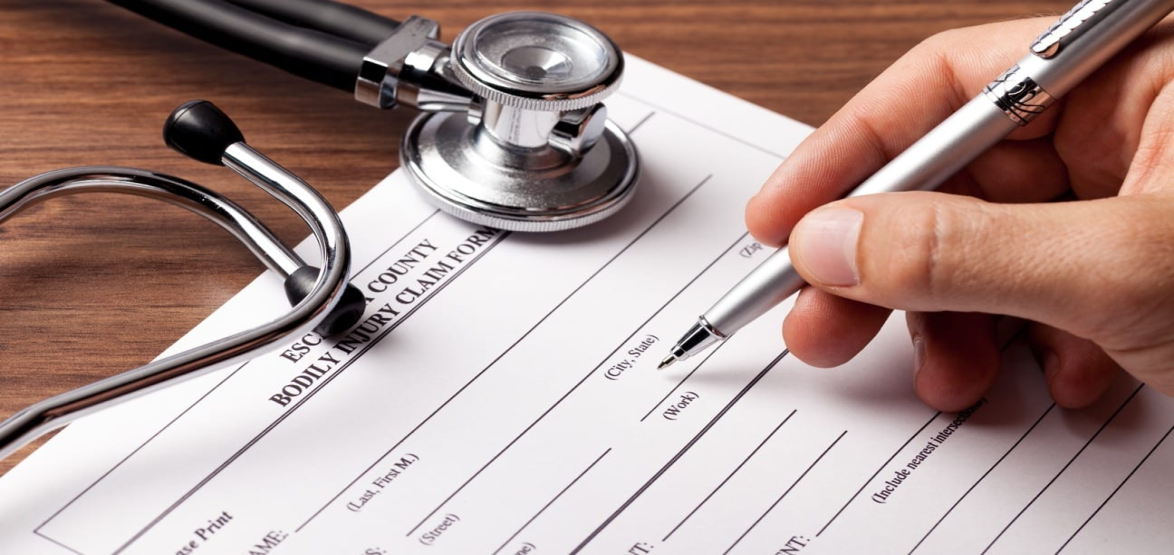Filing a bodily injury claim can be a complex process that requires careful attention to detail, thorough documentation, and a lot of patience. This step-by-step guide will help you navigate the process:
- Seek Immediate Medical Attention
Your health should be the top priority. Even if you don’t think you’re seriously injured, seek medical care immediately after the accident. Some injuries, like whiplash or internal bleeding, may not be immediately apparent. Your medical records are crucial evidence to support your claim and document the extent of your injuries. - Report the Accident
Report the accident to the police right away, especially if you have suffered injuries or significant property damage. The police report provides an official record of what happened, who was involved, and other important details. - Document Everything
Keep all evidence related to the accident and your injuries.- Take pictures of the accident scene, your car, the other vehicles, and any visible injuries.
- Maintain a journal of your physical and emotional condition after the accident.
- Keep all receipts, correspondence, and medical records.
- Notify Your Insurance Company
Inform your insurance company as soon as possible. Be careful not to admit fault or make detailed statements before consulting an attorney. - Consult a Personal Injury Attorney
An experienced personal injury lawyer can greatly influence the outcome of your case. An attorney can help you:- Understand your legal rights.
- Include all possible damages in your claim.
- Negotiate with insurance companies on your behalf.
- Prepare for litigation if a fair settlement cannot be reached.
- Keep Detailed Records of All Expenses and Losses
Track all costs related to the accident, such as medical bills and lost wages if you’re unable to work. This documentation is essential for demonstrating the financial impact of your injuries. - Follow Your Attorney’s Advice
Your lawyer will guide you through the entire process, from negotiating with insurers to filing a lawsuit if necessary. They have the expertise to navigate Florida’s complex laws and maximize your compensation.
Negotiating with Insurance Companies
Negotiating with insurance companies is a crucial step in obtaining fair compensation for bodily injuries after a car accident in Florida. Insurance adjusters are trained to minimize payouts to save their company money. Here’s how to prepare for negotiation and what to expect:
Understanding the Role of Insurance Adjusters
The outcome of your claim largely depends on the insurance adjuster. Their main goal is to settle claims quickly and at the lowest possible cost. Knowing their motivations and tactics can help you negotiate more effectively.
Negotiation Tips to Help You Get a Fair Deal
- Don’t Settle Too Quickly: Insurance companies often offer quick settlements to close cases before you fully understand the extent of your injuries and their long-term consequences. Avoid settling until you have a clear picture of your medical condition and have consulted with your attorney.
- Document Your Claim Thoroughly: A well-documented case, including evidence of the other party’s fault and detailed records of your injuries, treatments, and the impact on your life, will strengthen your negotiating position.
- Use Expert Testimony: In some cases, expert testimony from medical professionals or accident reconstructionists can help demonstrate the seriousness of your injuries.
- Negotiate a Fair Settlement: With your attorney’s help, determine the true value of your claim, considering all damages, including future medical expenses and non-economic losses like pain and suffering.
This post was written by a professional at Kevin L. Sullivan II. Attorney Kevin L. Sullivan II is your car accident lawyer Gibsonton FL, and the best personal injury attorney near you for LeavenLaw. Kevin is proud to serve Florida accident victims that have been injured in auto accidents, motorcycle accident, slip and falls or have suffered any other type of injury caused by negligence. Kevin offers a FREE no-obligation consultation to discuss your claim. There are NO upfront fees or costs and if he does not collect for you, you do not owe him anything.

